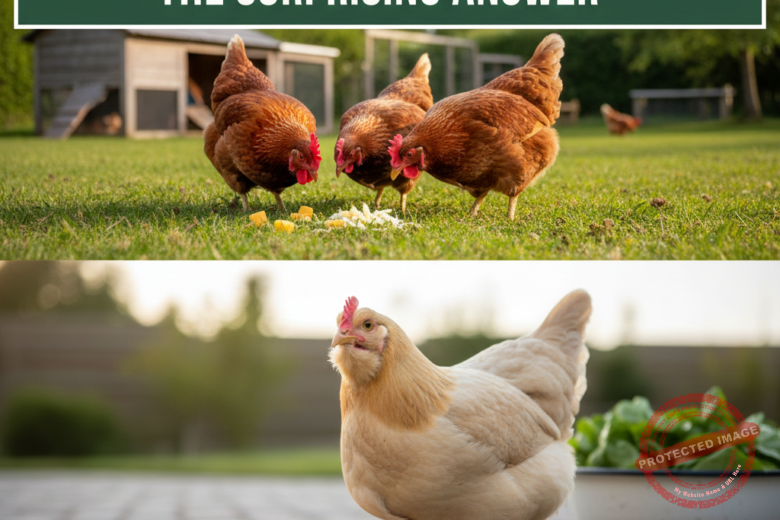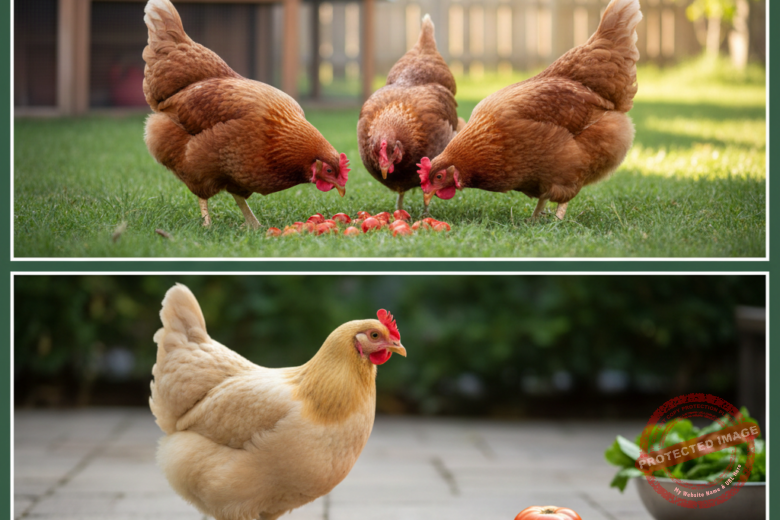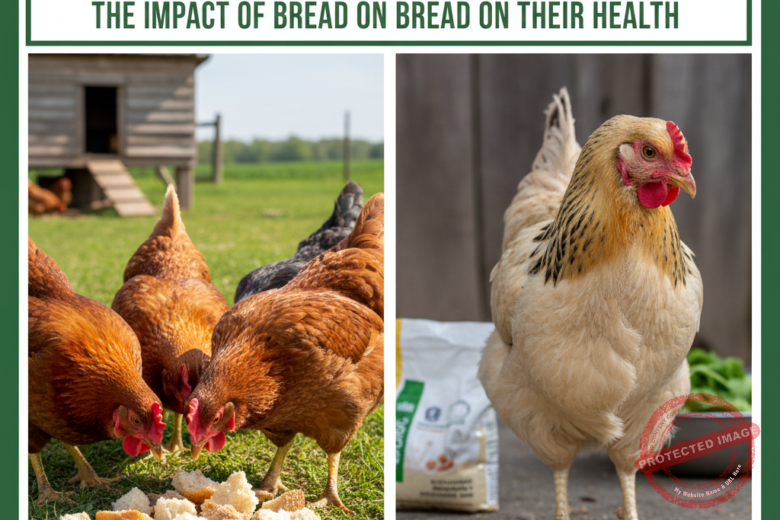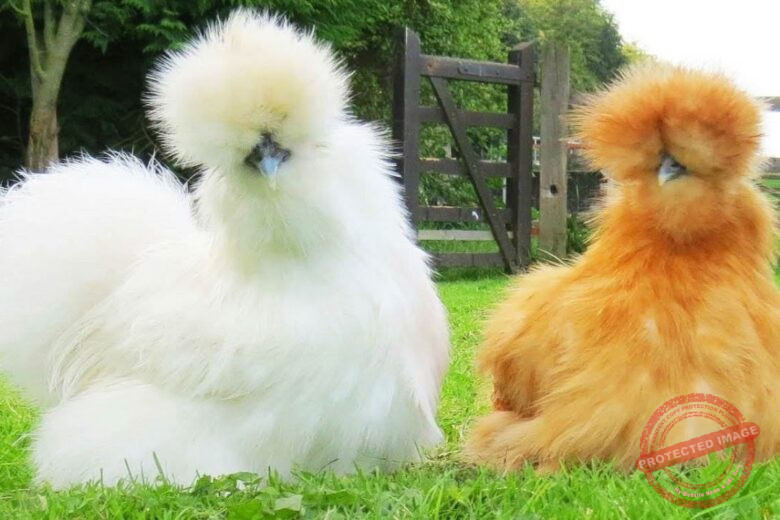If you’ve been around chickens long enough, you know how curious they can be. Toss something shiny or colorful their way, and you’ll see the whole flock rush over, clucking like it’s a treasure hunt. I’ve seen my hens chase a tomato like it was a gold nugget. But here’s the thing — not everything that looks tasty is safe for chickens. Some foods can upset their stomachs, while others can make them seriously sick. And a few? They’re downright deadly.
When I started keeping chickens years ago, I made my fair share of feeding mistakes. I once tossed out leftover potato peels, not realizing they were toxic when raw. The next morning, one of my girls looked weak and lethargic. I panicked and spent hours researching what I did wrong. Turns out, that innocent pile of peels could’ve killed her if I hadn’t caught it early. That moment taught me something every chicken keeper needs to know — what not to feed chickens is just as important as what you should feed them.
So today, I want to save you from the same headaches and heartaches. Whether you’re new to raising chickens or you’ve got a seasoned flock scratching around your backyard, this guide will walk you through the 45+ foods you should never toss into the run. And don’t worry, I’ll sprinkle in some personal notes and practical tips to keep your hens happy, healthy, and egg-productive.
Why Knowing What Not to Feed Chickens Matters
Chickens are opportunistic eaters. They’ll peck at nearly anything, from scraps of bread to bugs, to things they absolutely shouldn’t touch. Because they don’t have the same digestive filters we do, certain foods can cause blockages, poisoning, or even internal damage.
Healthy feeding keeps their eggs rich, their feathers glossy, and their bodies strong. But give them the wrong food, and it can lead to egg production issues, feather loss, or sickness that spreads through the entire coop. So think of this list as your “do-not-feed” bible for chickens.
1. Nightshade Family (Raw Potatoes, Tomato Leaves, Eggplant Leaves, Green Peppers)
The nightshade family contains a toxin called solanine, which is dangerous to chickens. Cooked potatoes are fine in small amounts, but raw or green potatoes can cause weakness, vomiting, and even paralysis. Always peel and cook before offering leftovers.
2. Chocolate and Caffeine
This one might seem obvious, but it’s worth repeating: no chocolate, coffee grounds, or tea bags. The caffeine and theobromine in these can quickly poison chickens. Keep those baking scraps out of the coop.
3. Onions and Garlic (In Large Amounts)
A little garlic powder in feed for immune support is fine, but raw onions or large amounts of garlic can damage red blood cells, leading to anemia. If your chickens get pale combs after eating onions, that’s a warning sign.
4. Avocado (Especially the Pit and Skin)
The flesh is okay in tiny bits, but the pit and skin contain persin — a toxin deadly to chickens. Don’t take chances. Avocados belong in your sandwich, not in the chicken run.
5. Moldy or Spoiled Food
Never feed moldy bread, fruits, or leftovers. Mold can contain toxins that affect a chicken’s liver and nervous system. If you wouldn’t eat it yourself, don’t feed it to your flock.
6. Raw Beans (Especially Kidney Beans)
Raw or undercooked beans contain lectins that can kill a chicken within hours. Always cook beans thoroughly before feeding.
7. Rhubarb Leaves
These contain oxalic acid, which is toxic to chickens. Even small amounts can cause tremors or death. Keep your rhubarb patch fenced off.
8. Salty Foods
Chickens don’t process salt well. High-sodium foods like chips, salted nuts, and processed meats can cause dehydration and organ failure.
9. Greasy or Fatty Foods
They might gobble down fried foods or leftover bacon grease, but too much fat clogs their systems and leads to fatty liver disease. Stick to wholesome kitchen scraps instead.
10. Too Much Bread
Bread is like junk food for chickens — it fills them up without offering real nutrition. A bite or two is fine, but not a loaf.
11. Apple Seeds
Apples are fine, but the seeds contain cyanide compounds. Remove the core and seeds before giving slices as a treat.
12. Grapes and Raisins
This one sparks debate. Some flocks seem fine eating them, while others show signs of digestive upset. To be safe, skip them altogether.
13. Citrus Fruits
Wondering what fruits can chickens not eat? Citrus tops that list. Oranges, lemons, and limes can interfere with calcium absorption, leading to soft eggshells.
14. Spicy Foods
That leftover jalapeño salsa may smell good, but spicy foods irritate their digestive tracts. Keep things bland for your birds.
15. Dairy Products
A tiny bit of yogurt for probiotics is fine, but chickens can’t digest lactose. Too much cheese or milk causes diarrhea.
16. Sugary Treats
No cookies, candy, or cakes. Sugar messes with their digestion and weight. Think “farm fuel,” not “dessert buffet.”
17. Raw Fish
Fish itself isn’t bad, but raw fish can carry bacteria and parasites. Always cook it first.
18. Rotten Corn or Moldy Feed
Moldy grains often contain aflatoxins, which can poison your flock. Always store feed in a cool, dry spot.
19. Raw Meat
Chickens are omnivores, but raw meat can carry harmful bacteria like salmonella. Cooked meat scraps? Totally fine. Raw? A hard no.
20. Lawn Clippings
Chickens love greens, but lawn clippings can be dangerous if sprayed with herbicides or fertilizers. Stick to garden greens you’ve grown organically.
21. Cabbage Core and Tough Stems
While leafy cabbage is great, the hard core can be tough to digest. Chop it finely if you want to feed it safely.
22. Unripe Tomatoes
Like potatoes, green tomatoes contain solanine. Wait until they’re fully red and ripe before sharing them.
23. Excessive Garlic or Onion Powder
Even though some people swear by garlic for parasite control, too much can mess with their blood cells. Keep it occasional, not daily.
24. Avocado Skin and Pits
Yes, I mentioned it earlier, but it deserves repeating. I once saw a neighbor lose a hen after she pecked at an avocado pit tossed into the compost. Lesson learned the hard way.
25. Cat or Dog Food
While it might seem like a protein boost, pet food contains preservatives and additives not meant for poultry.
26. Corn Chips and Crackers
The salt and oil content are too high. If you want to give corn, use fresh or dried kernels only.
27. Banana Peels
The flesh is fine, but the peels are tough, waxy, and sometimes treated with chemicals. Skip them.
28. Uncooked Rice
Contrary to myth, cooked rice is fine. But raw rice can swell in their crops and cause digestive blockages.
29. Processed Foods
Your chickens don’t need preservatives, additives, or artificial coloring. Keep snacks natural and simple.
30. Pickles
Too salty and acidic. Not a treat — more like trouble in disguise.
31. Peanuts (Especially Raw)
Raw peanuts can contain aflatoxins. Roasted and unsalted ones are safer but should still be limited.
32. Decorative Plants
Many common landscaping plants — like azaleas, daffodils, foxglove, and oleander — are toxic to chickens. Fence them off.
33. Fruit Pits (Peach, Cherry, Apricot)
Just like apple seeds, these pits contain cyanide. The flesh is fine, but keep the pits away.
34. Eggshells (Unsterilized)
Chickens can eat crushed eggshells for calcium, but make sure they’re baked and cleaned first. Otherwise, they might start pecking fresh eggs.
35. Raw Leeks and Shallots
Similar to onions, these can cause red blood cell damage.
36. Cocoa Powder
Even a small amount can be fatal. Keep chocolate-related foods off their menu.
37. Moldy Grapes
Fresh ones might be okay in small amounts, but never give spoiled or moldy ones.
38. Green Potato Peels
If they’ve turned green, toss them in the trash — not the coop.
39. Soda and Sweet Drinks
Too much sugar and chemicals. Stick with fresh water only.
40. Cured Meats (Ham, Sausage)
Loaded with sodium and nitrates. Absolutely not worth the risk.
41. Salad with Dressing
Chickens love plain greens, but creamy or vinegary dressings can upset their stomachs.
42. Raw Wheat Berries in Excess
Too much raw wheat can clog their digestive tract. If you use it, soak or sprout it first.
43. Garlic-Heavy Leftovers
That leftover garlic bread? It’s tasty for you, not for them.
44. Large Amounts of Herbs
Some herbs like oregano are fine in moderation but can overwhelm their systems if fed too much.
45. Bagels and Baked Goods
They might love them, but bread and baked treats provide almost no nutrition.
How to Build a Safe Feeding Routine
Keep a simple system: 90% balanced feed, 10% healthy scraps. Make sure everything’s clean and fresh. When in doubt, skip it. Chickens will do just fine without your leftovers.
FAQs About Chicken Feeding
Q: What fruits can chickens not eat?
Citrus fruits, grapes, and unripe or moldy fruits are best avoided. They can cause digestive issues or reduce egg quality.
Q: Can chickens eat cooked food?
Yes, as long as it’s not oily, salty, or sugary. Cooked veggies and grains are excellent options.
Q: Is feeding chickens kitchen scraps safe?
Yes, but stick to natural, non-processed foods. Avoid anything spoiled or moldy.
Final Thoughts: Feed With Love, Not Leftovers
Raising chickens isn’t just about keeping them fed — it’s about keeping them healthy. Every handful of feed, every kitchen scrap, and every treat you toss their way matters. When you feed wisely, they reward you with strong eggs, glossy feathers, and that peaceful backyard clucking that just feels like home.
So next time you’re cleaning up after dinner and thinking about tossing leftovers to the flock, stop for a second and ask yourself — would I eat this if I were a chicken?



